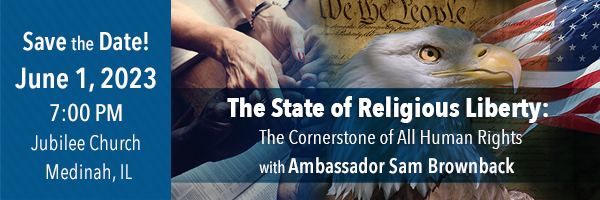Things are truly upside-down. Christians, who have been scorned forever as weak and milk-toast, are suddenly public enemy number one. And while Christianity has been the source of thousands of American charities and the inspiration for hospitals, medical care, and education worldwide, it is now labeled by the Left as hateful and bigoted. Then we see destructive anarchist groups like Antifa and BLM glorified in the Media and academia as forces for good! How could this be?
The Left has had an advantage over conservatives in shaping the public’s perception of things for many years because they have controlled the narrative. They have presented themselves as caring and compassionate, sympathetic to the poor and the disadvantaged. And, because of the Christian ideal of giving people the benefit of the doubt, we have accepted that maybe they were truly concerned for those who are less advantaged.
However, because Leftists now have so much power, they no longer feel the need to hide their true objective. They seek political dominance and the elimination of Christianity in all public forums and will do whatever is necessary to accomplish those goals. They have portrayed themselves as selfless champions of the downtrodden, and conservatives as greedy. However, we must no longer tolerate that narrative. It is a lie, and their duplicity is clear to all whose eyes are open.
Leftists have done well at creating the perception that they are not in politics for money, thus masking their greed. But make no mistake! They are as greedy as one can be. However, if you have enough power, you do not need personal wealth because you control other peoples’ money.
With the power to tax, politicians can live as if they are wealthy by legally confiscating and spending other people’s money. Creating wealth is difficult and requires certain skills and discipline. But if you are not talented in this area and are lazy and unethical, politics provides you with a vehicle to achieve your dreams without the hard work and risk that capital creation requires.
What we have seen over the last 60 years is the Left demonizing those who create wealth in order to justify confiscating it.
At the same time, the leftists, who disdain wealth creators, have convinced the public that they (the Leftists) are better and more selfless stewards of that wealth. Thus, we have people who are incapable of creating wealth, taking it from those who do and spending it according to their own desires and accruing to themselves more power in the process. It is interesting how many politicians have become multimillionaires even as they denounce those who created the wealth in the first place.
We are now governed by people who have no idea how to create or wisely manage wealth, and whose real motivation is that of controlling the rest of us. They are the embodiment of greed. They are concerned primarily for themselves and serve others only as a means of accruing power and wealth to themselves.
While one would expect that they would alienate most everyone because of their greed, they have managed to gain a substantial following among three groups who sustain them in power: those who are content to take a handout and produce nothing, those who are genuinely needy and have become dependent upon the politicians, and a third group who are equally cynical and see an opportunity to accrue some personal power and prestige by supporting the Leftists and their sordid process.
Sadly, the Media, whose primary responsibility is to hold public figures accountable, cover for their corruption. There is no way to describe it other than that of non-producers stealing and controlling what the producers have created. They are truly parasitic.
This brings us to the very important question: what does the Bible say about all this? As “pilgrims” here are we to be compliant and silent? Compassion and generosity are certainly Christian values! But as an aside, let us put to rest the nostrum that Leftism is compassionate. It decidedly is not! After decades of the federal government spending literally trillions of dollars on numerous supposedly compassionate programs, the poor remain poor and the powerless remain powerless.
If these programs are as bad as they appear, we should turn our attention to their impact on society in general and on those who contribute. Is it moral to confiscate resources from those who create and earn it only to squander it on ineffective programs? I believe the evidence suggests that the exorbitant taxation upon the middle and upper classes in America over the last 50 years has been both immoral and counterproductive.
So, what does the Bible teach about such things? One need not be a Bible scholar to know that stealing is wrong. Therefore, without having good reason the government should not take from one citizen to give to another. Having the government’s imprimatur does not change the reality that transferring wealth from earners to non-earners without Constitutional authority is theft. The right to personal property guaranteed in the Constitution is not simply to provide for an individual’s greed, but rather to protect his life.
Unprotected property rights place every citizen’s life at risk. If the government can take, at will, one’s wealth, it can starve that person to death. And the fact that even after trillions of dollars have been transferred, primarily from earners to non-earners, there are still many millions in poverty underscores the need to rethink our “compassionate” welfare system. As constructed, it is a colossal failure.
Foundational to the issue is the fact that government is incapable of ministering compassion. It must fall to other social institutions and organizations, such as churches, to resolve the poverty problem.
The Bible notes that “wisdom is justified of her children,” (Luke 7:35), meaning that the wisdom of an act is revealed by its consequences; and Jesus stated that “a tree is known by its fruit,” (Luke 6:44). Therefore, if a particular activity repeatedly produces bad results one can assume the act is foolish and ought to be discontinued. One’s intentions mean nothing in this.
While the Left burnishes their “compassion badges,” boasting of how much they care, virtually everything they have done for over fifty years has produced nothing but heartache, misery, poverty and increased public unrest. It cannot be ignored that as Christianity has been pushed to the fringes of society there have been tragic increases in crime, depression, suicide, divorce, sexual perversion, and confusion.
Setting aside for the moment those who cannot provide for themselves, the Bible is very clear that anyone who refuses to work should not eat. Witness the sorry tales of so many lottery winners to understand that we do not do well with unearned wealth! Therefore, government should do nothing to facilitate a comfortable life for those unwilling to work. Sources, secular and sacred, confirm that generally, those who are diligent, disciplined, and work hard do not go hungry.
Scriptures tell us that God gives rain to those who love Him and those who don’t. He is gracious! This does not mean that His provision will always be abundant. We should all be grateful to him for his care and provision for us whether it be modest or abundant. It may be that one of our biggest errors, culturally, is that we have raised a generation of Americans who believe they are owed a rich and comfortable existence even though they have done little or nothing productive. To give it to them would be immoral and destructive!
Colonial Jamestown, VA scholar, Martha McCartney, wrote in Encyclopedia Virginia, (Dec 7, 2020) that Captain John Smith, early President of the colony, would have nothing of slothfulness, declaring that
“the labours of thirtie or fortie honest and industrious men shall not be consumed to maintaine a hundred and fiftie idle loyterers.”
Whatever his motives, it is quite clear that his stubbornness preserved lives. Very few died under his leadership while a large number perished under the leadership of his successor who was not so strict. As McCartney noted,
“Regardless of whether Smith recognized this fact, he found that even small amounts of work improved both the material life and health of the colonists.”
These realities are so obvious that no politician can honestly deny them. To create a public welfare system where productivity and hard work are discouraged by the government’s confiscation of wealth from producers to distribute it to those who are unwilling to work is simply immoral and will, if not corrected, contribute to the collapse of the entire economy. It is impossible for our politicians not to understand this, therefore, we need no longer accept the notion that they are well-intentioned but misguided.
No, they are simply greedy, either for money or power, or both. They are snakes in the grass who ought to be exposed for what they are. Their programs have produced virtually nothing of value and instead an abundance of suffering.
In seeking a biblical perspective, the faithful Christian should consider two primary principles: First is his responsibility to the poor. Numerous biblical texts in both Old and New Testaments give God’s answer. On one hand, Christ Himself noted that, “the poor you have with you always.” This is merely a sad acknowledgement of reality. People are poor for a variety of reasons, many of which are intractable.
This must not be construed as cause for doing nothing. Many Christians and others have seen the impossibility of eliminating poverty as cause for discouragement and apathy.
However, Christ’s parable of the Good Samaritan teaches us that while we may not be able to do much about poverty across the globe, we can do something about people in need who cross our paths regularly. Therefore, the Christian ought to be known for wise generosity: encouraging work for those able, and compassionate giving to those who cannot provide for themselves.
Which leads to the second principle: Just as it is wrong to ignore genuine need, it is wrong to indulge the indolent. The Scriptures teach that if a man refuses to work, he should not be given food. It is for his own betterment that others refuse to support him in his slothful choices. He will gain more than a meal when he learns the value of hard work.
America is at a fork in the road. Will we return to the imperfections, yet relative goodness of a society guided by the principles and truths of Christianity and the Bible, or adopt Marxism and fall back into the despotism and misery that has otherwise characterized human history from its beginnings?
The choice seems pretty clear to me!




